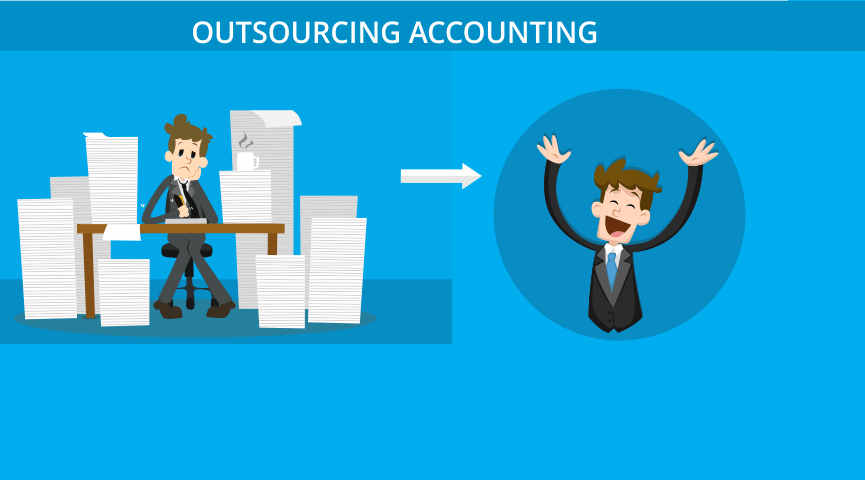Outsourcing accounting services can offer substantial benefits to businesses, including cost savings, access to expert knowledge, and the ability to focus more on core business activities. However, before taking the leap, it’s crucial to prepare adequately to ensure you get the most out of the outsourcing arrangement.
Accounting services are the backbone of any successful business, ensuring that financial records are accurate, up-to-date, and compliant with regulatory standards. By thoroughly assessing your needs, researching potential providers, defining clear goals, and establishing robust communication and monitoring protocols, you can confidently outsource your accounting services and reap the benefits of this strategic decision. Here are some essential measures to take before outsourcing your accounting services.
1. Assess Your Business Needs
Understand Your Requirements
Before reaching out to potential outsourcing partners, conduct a thorough assessment of your accounting needs. Determine the scope of services you require, such as bookkeeping, payroll processing, tax preparation, or financial reporting. Knowing what you need will help you select the right provider and avoid paying for unnecessary services.
Identify Pain Points
Identify specific pain points in your current accounting processes. Whether it’s inefficiencies, errors, or compliance issues, understanding these challenges will guide you in choosing an outsourcing partner that can address them effectively.
2. Conduct a Cost-Benefit Analysis
Evaluate Costs
Compare the costs of outsourcing with maintaining an in-house accounting team. Consider factors such as salaries, benefits, training, software, and equipment for in-house staff. Outsourcing can often reduce these expenses significantly.
Consider Benefits
Weigh the benefits of outsourcing, such as access to experienced professionals, advanced technology, and the ability to scale services up or down as needed. A cost-benefit analysis will help you make an informed decision about whether outsourcing is financially advantageous for your business.
3. Research Potential Providers
Check Credentials
Look for providers with the necessary qualifications and certifications, such as Certified Public Accountants (CPAs) or Chartered Accountants (CAs). Verify their credentials and ensure they have a solid reputation in the industry.
Review Experience and Expertise
Evaluate the provider’s experience in your industry. Accounting practices can vary significantly between industries, so it’s beneficial to work with a provider who understands the specific accounting requirements of your sector.
4. Evaluate Technology and Security
Assess Technology Capabilities
Ensure the provider uses up-to-date accounting software and technology. Modern software can enhance efficiency, accuracy, and compliance. Ask about the specific tools and platforms they use and how they integrate with your existing systems.
Ensure Data Security
Data security is paramount when outsourcing accounting services. Inquire about the provider’s security measures, including encryption, secure data storage, and access controls. Make sure they comply with relevant data protection regulations, such as GDPR or CCPA.
5. Check References and Reviews
Seek Client Testimonials
Ask potential providers for references from current or past clients. Speaking directly with other businesses that have used their services can provide valuable insights into the provider’s reliability, professionalism, and quality of work.
Read Online Reviews
Check online reviews and ratings on platforms like Google, Yelp, or industry-specific review sites. Pay attention to both positive and negative feedback to get a balanced view of the provider’s reputation.
6. Define Your Goals and Expectations
Set Clear Objectives
Clearly define your goals and expectations for outsourcing. What do you hope to achieve? Whether it’s cost savings, improved accuracy, or enhanced compliance, setting clear objectives will help you measure the success of the outsourcing arrangement.
Outline Performance Metrics
Establish key performance indicators (KPIs) to track the provider’s performance. Metrics such as accuracy, timeliness, and responsiveness can help you assess whether the provider is meeting your expectations.
7. Establish a Communication Plan
Set Communication Protocols
Effective communication is critical for a successful outsourcing relationship. Establish clear communication protocols, including points of contact, preferred communication channels, and frequency of updates. Regular communication ensures that both parties are aligned and any issues are promptly addressed.
Schedule Regular Meetings
Plan for regular meetings to review progress, discuss any challenges, and make necessary adjustments. These meetings can be weekly, monthly, or quarterly, depending on the scope and complexity of the services being outsourced.
8. Create a Detailed Contract
Outline Scope of Services
Draft a detailed contract that outlines the scope of services, including specific tasks, deliverables, and deadlines. This helps prevent misunderstandings and ensures that both parties are clear about their responsibilities.
Include Service Level Agreements (SLAs)
Incorporate SLAs into the contract to define the expected level of service. SLAs can cover aspects such as response times, accuracy rates, and turnaround times. These agreements hold the provider accountable and provide a basis for measuring performance.
Address Confidentiality and Data Protection
Include clauses in the contract that address confidentiality and data protection. Specify how sensitive information will be handled and the consequences of any breaches. This protects your business from potential risks associated with data exposure.
9. Plan for a Smooth Transition
Prepare Your Team
Inform your internal team about the decision to outsource and explain the reasons behind it. Address any concerns they may have and outline how the transition will affect their roles. Having your team on board will facilitate a smoother transition.
Coordinate with the Provider
Work closely with the provider to ensure a seamless handover of responsibilities. Provide them with the necessary documentation, access to systems, and any other information they need to get started. A well-coordinated transition minimizes disruptions to your business operations.
10. Monitor and Review Performance
Track Progress
Regularly monitor the provider’s performance against the established KPIs and SLAs. Keep an eye on the quality and timeliness of their work to ensure they are meeting your expectations.
Conduct Periodic Reviews
Conduct periodic performance reviews with the provider. Discuss any areas of concern, provide feedback, and make adjustments as needed. Continuous improvement is key to maintaining a successful outsourcing relationship.
Bottom Line!
Outsourcing your accounting services with MonkTaxSolutions can be a game-changer for your business, offering numerous benefits such as cost savings, access to expertise, and improved efficiency. However, careful preparation and due diligence are essential to ensure a successful outsourcing arrangement. By taking these measures before outsourcing your accounting services, you can set the stage for a productive and mutually beneficial partnership that helps your business thrive.




